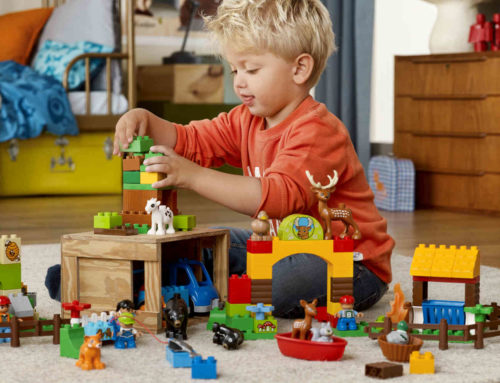So the time has come. You’re off to see a speech pathologist. Perhaps you feel relieved that you’re going to get some answers and address some of your concerns? Maybe you’re feeling annoyed that you have to do this at all since you’re really only going to get others off your back. There’s also a pretty good chance that you’re feeling anxious – What are they going to say? What are they going to do? Is there a problem? How bad is it? What does it mean for my child?
The unknown is scary, so today I’m going to try to put your mind at ease by giving you a bit of a general guide of what to expect.
Case History
Speech and language skills do not develop in isolation. This is why it is so important for the therapist to gather a thorough case history to ensure that we are putting all of the pieces of the puzzle together to best help your child. In some situations the therapist will just have a chat with you and as part of that conversation they will ask you particular questions to get the information they need. In other cases, you might be provided with a written questionnaire during, or even prior to the session.
The kind of information we will be asking about includes (but is not limited to); your child’s birth history, details regarding their developmental milestones, their general medical history, information about who lives at home, what languages are spoken, childcare/school details, and of course, particular attention will be paid to the reason you are here in the first place.
I know it sounds like a lot, but please remember it is not a test! There are no right or wrong answers. We are not asking you these questions to judge you. I assure you there will be no tut-tutting or tsk-tsking your responses. We are asking them simply because they relate to speech and language development. For instance, we know that prematurity and very low birth weight are risk factors for speech and language problems. That is one of the reasons why we ask about birth history. Rest assured, I don’t care if you gave birth drug free in a rainforest or had a bit of everything on offer in the birthing suite!
Furthermore, if we ask you something and you don’t know the answer, don’t panic! It is not the end of the world. I have had parents who come in with their 10 year old and cringe and apologise because they can’t remember exactly when they took their first steps or said their first word. Pfft, my youngest is only just two and it feels like I can’t even remember her name some days. Seriously, don’t beat yourself up about it.
On a more serious note though, there is a big difference in genuinely not knowing or not remembering something and withholding information. As I said earlier, we are not here to judge you. We are here to help. So if you aren’t giving us the full story it can make it very difficult for us to do our job to the best of our ability. If we have asked a question that you feel is too personal, or if you don’t see how it relates to what we need to know, please let us know and we will happily explain it. We don’t give a rationale for every question simply due to time constraints, but if you are feeling uncomfortable we would much rather you let us know so we can spend the time going over it with you.
If you are worried that revealing certain information will cloud our judgment, don’t be. A good therapist will take all of the information on board, but will conduct their own thorough assessment and provide their independent findings and conclusions. To put this into perspective, I have been working with an absolutely wonderful family recently who came to me for a second opinion. Someone had strongly suggested that their child displayed traits of Autism. This came as a huge shock to the family. When the child’s mother contacted me, it would have been easy for her to keep those details quiet and to just see what I came up with. Instead, she told me everything. I am so grateful that she trusted me enough to do that. Whilst it did not affect my assessment in any way, it did help me understand where the family was coming from. In the end, I provided my findings, which were considerably different to the previous ones.
Assessment Tasks
Wherever possible, it is best if parents watch the assessment. The type of assessment tasks performed will vary based on your child’s age, temperament and the concerns that have been raised. For example, if there are concerns regarding the way your child pronounces speech sounds, we will often have a casual conversation (to get an idea of their pronunciation in sentences) and then show them some pictures and get the child to name them (so that we can hear all of the different speech sounds in different positions of single words e.g. sun, castle, dress).
If there are concerns regarding a school age child’s language skills, such as difficulties following instructions, understanding and answering questions, using accurate vocabulary, grammar and sentence structures, they will usually be shown different kinds of pictures and asked questions about them. For example, “Can you point to the big black car, the little white ball and the first house”, “Can you make up a sentence about this picture using the word “gave”?, “Which two of these three pictures go together best and why?”. These types of tasks are designed to push children to their limit (gently of course!) so don’t worry if your child starts to make lots of mistakes, it’s part of the process.
If there are concerns with an infant or toddler’s language development, such as no babbling by 12 months of age, less than 10 words by 18 months or less than 50 words by 2 years, a play based assessment will be performed. Play based assessments may also be the most appropriate choice for older children with developmental delays. Don’t be fooled into thinking that the speech pathologist is “just playing” in these scenarios. In actual fact, we are using the toys and scaffolding the play so that we can check your child’s level of understanding/comprehension (e.g. “Where’s the cup?” vs. “Give teddy a drink” vs. “Teddy is thirsty”), their level of play (e.g. banging two blocks together vs. stacking one on top of the other vs. driving them around like cars), their gestures (e.g., waving, pointing, giving high 5’s, shaking their head for ‘no’), their social skills- pragmatics, (e.g., vocalizing to get attention, taking turns in routine games like peekaboo) and their expressive/verbal skills (e.g., babbles different sounds/syllables vs. imitates words, vs. says single words spontaneously, vs. combines two words together).
So whilst it may look like we’re just having a tea party on the floor, odds are we’re getting lots of important information about your child’s skills. A good therapist should always explain what they are doing but sometimes we can get a bit lost in the moment. So if at any time you are uncomfortable or unsure about what is happening, it is perfectly fine to stop us and ask us about it.
Rapport building
Another important part of the assessment process is to simply spend a few minutes letting the child and the therapist get to know each other. We all respond differently to various personality types. Some people really engage with big, loud personalities, whereas that can be completely overwhelming for others who respond more to the calmer, quieter types. There’s no right or wrong, but it is important to find the right fit for your child and your family.
When it comes to children we’ve seen it all! Tears, tantrums, toileting accidents – working with kids it’s part of the territory. So don’t worry if your child has a meltdown or is so shy initially that they refuse to speak or participate, we have tricks up our sleeves to try and win them over. In saying that, it’s probably best not to schedule your appointment at sleep time, or bring them in at midday if they haven’t had lunch yet. After all, no one is at their best when hungry or tired!
What happens next…?
Depending on the type of assessment conducted and how your child performed, the speech pathologist may be able to give you some feedback immediately or they may not.
If it is clear that your child is doing exactly what is expected of them for their age, the therapist will be able to reassure you that everything is ok. On the other hand, if it is clear that your child is experiencing some difficulties, the therapist may be able to explain what this means and give you some ideas on what you can start doing at home to help.
Sometimes though, it is not as clear-cut and the therapist will need time to go away and review the assessment results before providing you with any conclusive feedback. I appreciate that this can be frustrating for families, but it is important not to rush the process. The speech pathologist will provide you with answers as soon as possible.
In most instances an assessment report will be provided sometime after the assessment, which will help to explain the results, provide details regarding your child’s strengths and weaknesses and outline the speech pathologist’s recommendations.
Remember…
No two assessments are the same. Whilst there will be similarities, there will also be differences as it all depends on your child’s age, temperament and the concerns that have been noted. Each speech pathologist and practice also have their own policies and procedures to follow so differences may arise in that regard as well. The most important thing to remember is that if you have any questions or concerns at any stage, ask!
Don’t forget to Like Modern Speechie on Facebook for more information and tips to help your child be the best communicator they can be!







Leave A Comment